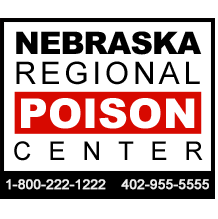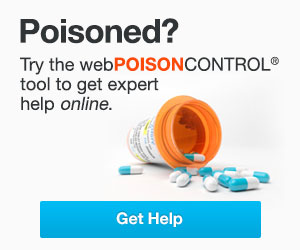Summertime fun…but beware…poisonings still happen
Summer is usually a time for enjoying picnics, swimming and grilling out. It can also be a time for more poisonings because the days are longer and children are outdoors more. As the seasons and weather change, so do the types of calls to the Nebraska Regional Poison Center. Some examples of calls to the Poison Center in the summer months include; bites and stings, insect repellents, hydrocarbons, glow sticks, fireworks, food poisoning, and swimming pool chlorine.
Bites and Stings: This category can include bee stings, spider and snake bites. Close observation for an allergic reactions is important, especially in the first hour after a sting. Ice is ok for most stings and bites, with the exception of snake bites. Some of the old wives tales on treating bites and stings aren’t always correct. Always call the Poison Center for assistance.
Insect Repellents: Only use insect repellents that are meant to be used on the skin. Avoid over-application. The long word for DEET is N,N-diethyl-m-toluamide. Most labels will have the long chemical word listed. Use concentrations < 20%. A higher concentration does not mean that the product will work better, rather it means that it will be effective for a longer period of time. Use repellents only when outdoors and wash skin with soap and water when coming in. Picaridin is an odorless synthetic ingredient found in some bug repellents and is a safe alternative to use on children. Follow all label directions.
Hydrocarbons: This category can include gasoline, kerosene, lighter fluids and torch fuels. The hydrocarbon group is slick and oily. One of the main risks with ingestion is that it may “slip” into the lung causing a chemical pneumonia. Store all of these products in the original container and well out of reach of little hands.
Glow Sticks: Glow sticks are a common call to the Poison Center. The liquid on contact with mouth, skin and eyes can be irritating.
Fireworks: Fireworks may contain a number of toxic chemicals and can be dangerous if swallowed. Always call the Poison Center for case specific recommendations.
Food Poisoning: When firing up the grill or heading to a picnic, it’s important to take some precautions. Remember to keep hot foods hot and cold foods cold. The USDA recommends fully cooking all meats to ensure bacteria are destroyed to prevent food poisoning. Meats should be cooked to 160 degrees. Always use a food thermometer.
Swimming pool chlorine: When too much chlorine is added to water in a swimming pool, contact with the skin and eyes may result in redness and a burning sensation. If you suspect an overly chlorinated pool, rinse your skin and eyes immediately, contact the lifeguard/pool manager, and call the Poison Center. Chlorine from an indoor pool, or opening a container of chlorine pool tablets may cause coughing or tightness in the lungs. Seek fresh air immediately.
The Nebraska Regional Poison Center is a free community service to the public.
Call 1-800-222-1222 and talk immediately to a Registered Nurse or Pharmacist 24/7/365.
Text “poison” to 797979 to save the contact information for the poison center in your smart phone.


Leave a Reply
Want to join the discussion?Feel free to contribute!